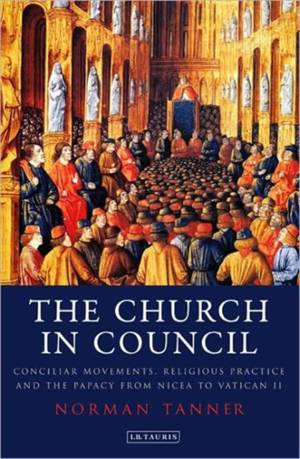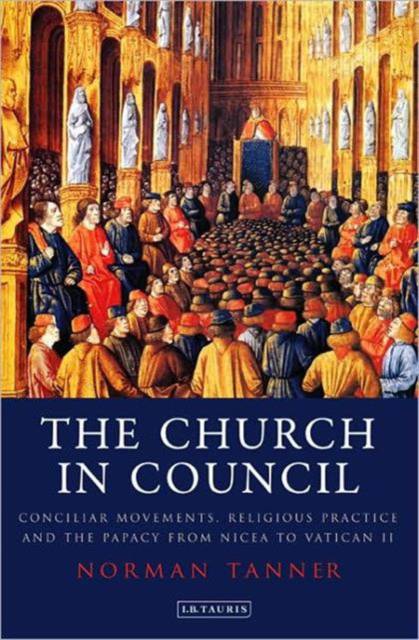
Door een staking bij bpost kan je online bestelling op dit moment iets langer onderweg zijn dan voorzien. Dringend iets nodig? Onze winkels ontvangen jou met open armen!
- Afhalen na 1 uur in een winkel met voorraad
- Gratis thuislevering in België vanaf € 30
- Ruim aanbod met 7 miljoen producten
Door een staking bij bpost kan je online bestelling op dit moment iets langer onderweg zijn dan voorzien. Dringend iets nodig? Onze winkels ontvangen jou met open armen!
- Afhalen na 1 uur in een winkel met voorraad
- Gratis thuislevering in België vanaf € 30
- Ruim aanbod met 7 miljoen producten
Zoeken
The Church in Council
Conciliar Movements, Religious Practice and the Papacy from Nicaea to Vatican II
Norman Tanner
€ 271,45
+ 542 punten
Omschrijving
Councils have been of fundamental importance to the historical development of the Catholic Church. From the First Council of Nicaea in 325 CE to the reforming Second Vatican Council of 1962-5, the conciliar movement has more often than not represented the interests and prerogatives of the mass of the faithful: frequently - especially from medieval times - as a bulwark against the untrammelled supremacy of the Pope. Norman Tanner is arguably the outstanding scholar of church councils writing in English and his work provides an essential framework to our understanding of the development of Western Catholicism. In this volume, which assembles some of his best work on the topic, he reflects on the legacy of conciliarism, and shows how and why the apostolic spirit of Nicaea was to resurface at Vatican II.
Specificaties
Betrokkenen
- Auteur(s):
- Uitgeverij:
Inhoud
- Aantal bladzijden:
- 264
- Taal:
- Engels
- Reeks:
Eigenschappen
- Productcode (EAN):
- 9781848855137
- Verschijningsdatum:
- 15/01/2011
- Uitvoering:
- Hardcover
- Formaat:
- Ongenaaid / garenloos gebonden
- Afmetingen:
- 157 mm x 231 mm
- Gewicht:
- 557 g

Alleen bij Standaard Boekhandel
+ 542 punten op je klantenkaart van Standaard Boekhandel
Beoordelingen
We publiceren alleen reviews die voldoen aan de voorwaarden voor reviews. Bekijk onze voorwaarden voor reviews.











